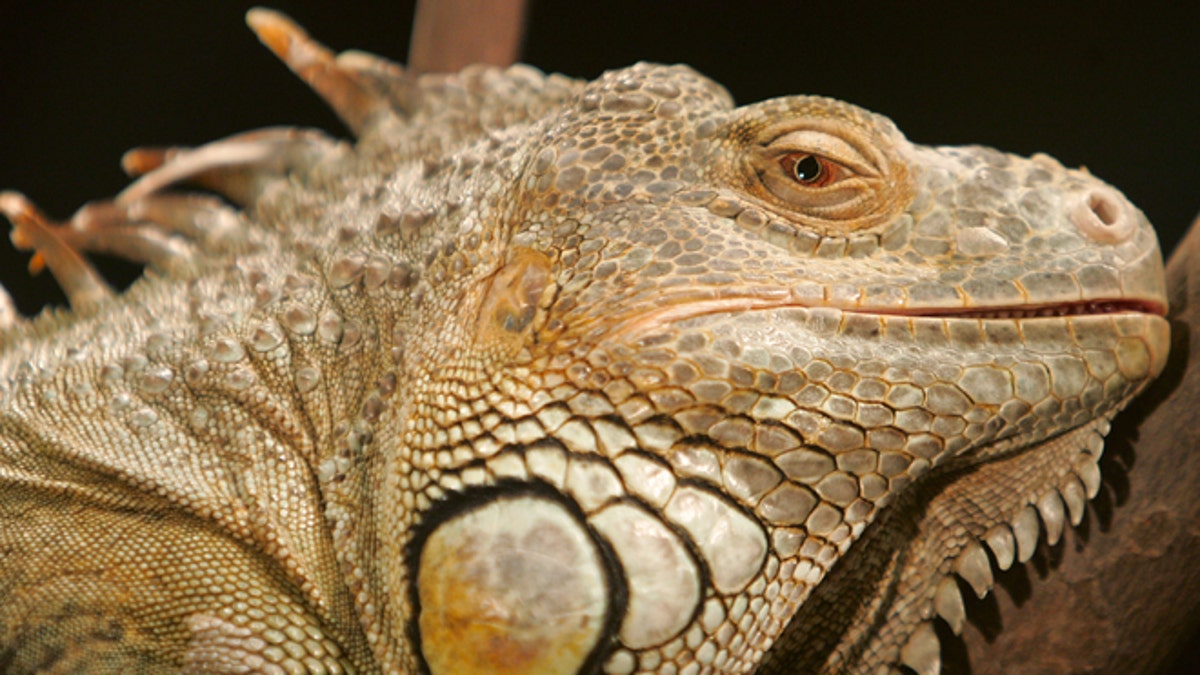
(2005 Getty Images)
Nicaragua, the second poorest country in the Western Hemisphere, is looking for a way to fight malnutrition, poor harvests and the rising price of food staples. One member of the government has come up with what he believes is a scaly solution to all those problems: the iguana.
Guillermo Membreño, a land management expert, suggested to Nicaragua’s government-run online newspaper, La Voz del Sandinismo ("The Voice of the Sandinista Movement"), that citizens begin breeding these prehistoric-looking lizards.
He claimed that the reptiles are a great supply of dietary protein, packing 24 percent of one's suggested daily intake, compared to just 18 percent in chicken – although it's unclear where or how the land manager arrived at those figures.
Beyond that, he added, people could sell the lizards as pets or their pelts to leather manufacturers for monetary gain.
The proposal has been met with some skepticism – especially with those that say that lizard doesn’t taste like chicken – but Membreño is quick to point out that, “Even if you’ve only got 10 iguanas, you’ve got something that offers food—and cash [if you sell the iguanas for meat, their skins or as pets],” Vice’s Munchies website reported.
And there is no doubt that Membreño is addressing a real need. According to the Guardian newspaper in the U.K., a recent report by the U.S. Agency for International Development's Famine Early Warning Systems Network, said, "Extremely poor households across large areas of Guatemala, Nicaragua, Honduras and El Salvador will experience a rapid deterioration in their food security in early 2015."
Nicaragua has banned the hunting of iguanas between January and April of every year but has made exceptions for people hunting the lizards for sustenance. The country, however, isn't about to encourage citizens to venture into the tropical rainforest in order to hunt down their dinner.
Instead, the ides is to have iguana farms, where residents can breed the lizards and grow the Moringa tree as feed for the reptiles.
Despite the push to consume more lizard meat, some scientists worry about the related health issues that go along with eating iguana and other reptiles, especially those that have been farm raised.
A study published in the International Journal of Food Microbiology warned that farm-raised lizards – normally bred for their skins but also sent to some specialty restaurants – can contain parasites, bacteria and viruses, and to a lesser extent contamination from heavy metals and residues of veterinary drugs.
"The clearest microbiological risk comes from the possible presence of pathogenic bacteria, especially Salmonella, and also Shigella, E. coli, Yersinia enterolitica, Campylobacter, Clostridium and Staphylococcus aureus, which can cause illnesses of varying degrees of severity," Simone Magnino, lead author of the study and a researcher for the World Health Organization (WHO) told Science Daily. "Although the majority of the information published about these risks is in relation to reptiles raised as domestic animals (pets), there are also publications relating to wild species or those bred in captivity."
The idea of munching on lizards in a large-scale way is not new. In 2010 Puerto Rico announced plans to kill as many of the iguanas as possible and export their meat in hopes of eradicating an imported species that has long vexed residents and entertained tourists.
The U.S. territory has roughly 4 million iguanas, which is a little more than the island's human population, according to Daniel Galan Kercado, secretary of the Department of Natural Resources.
"This is a very big problem. We have to attack it," he said in an interview. "It has impacted structures, the economy, crops and the ecosystem."
The Associated Press contributed to this report.
Follow us on twitter.com/foxnewslatino
Like us at facebook.com/foxnewslatino
